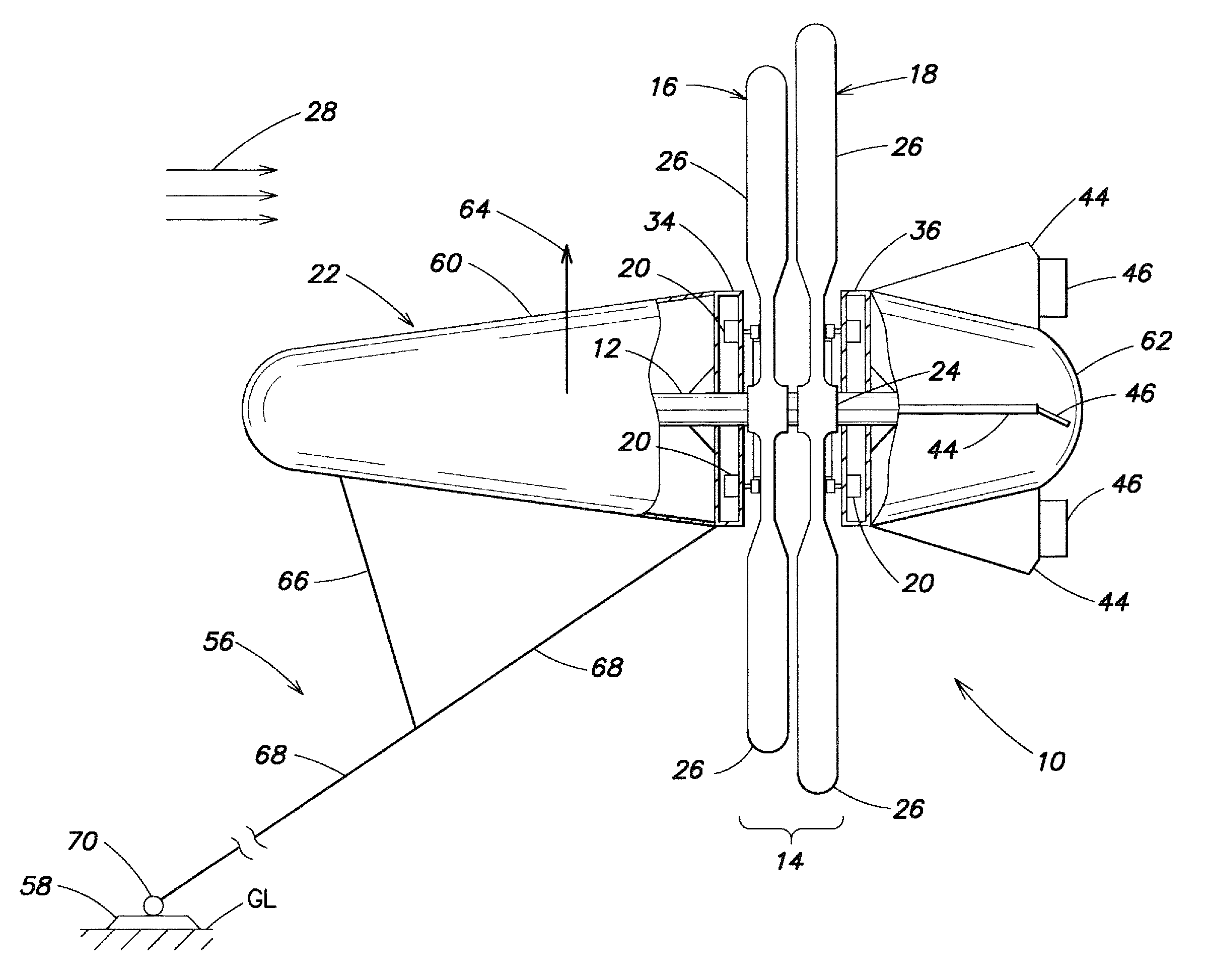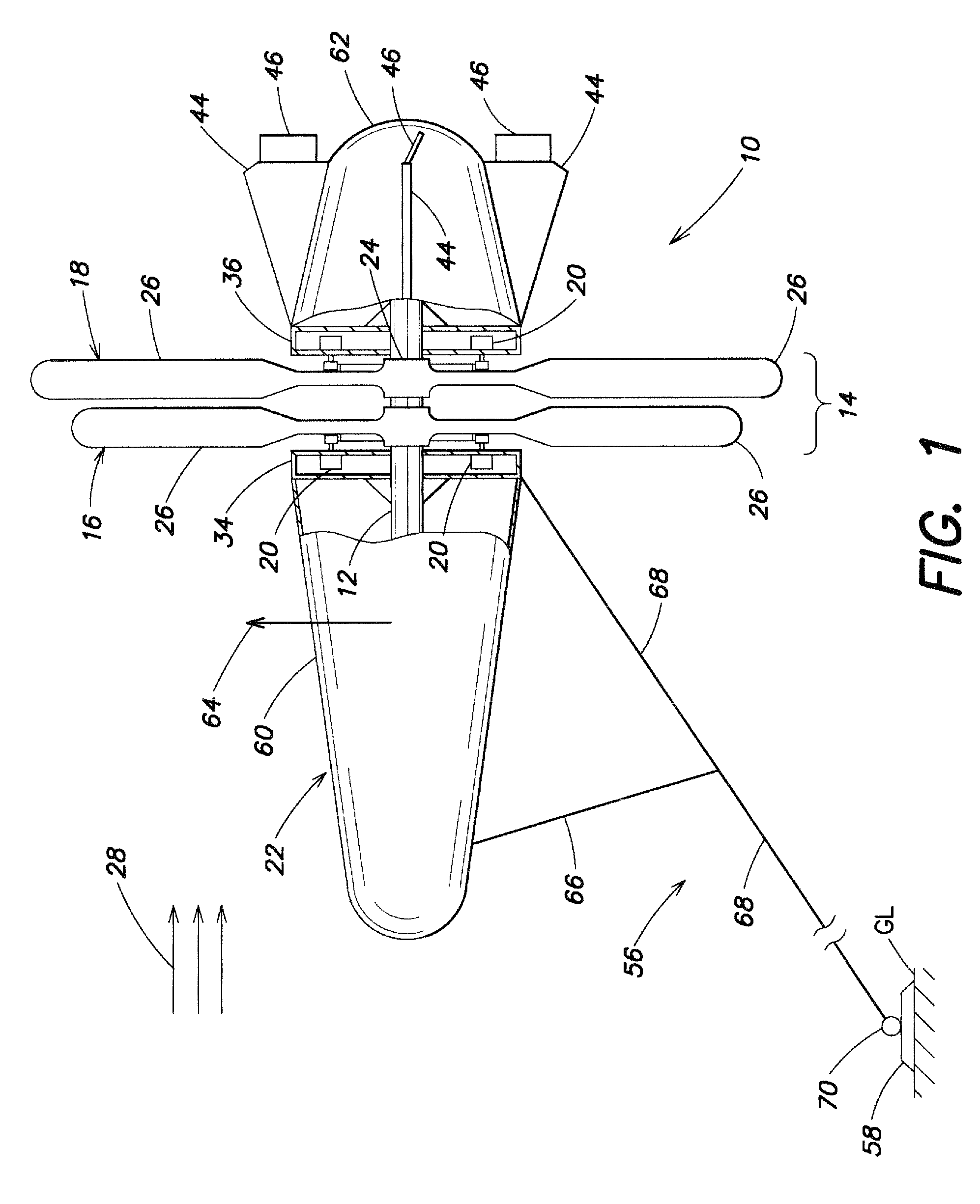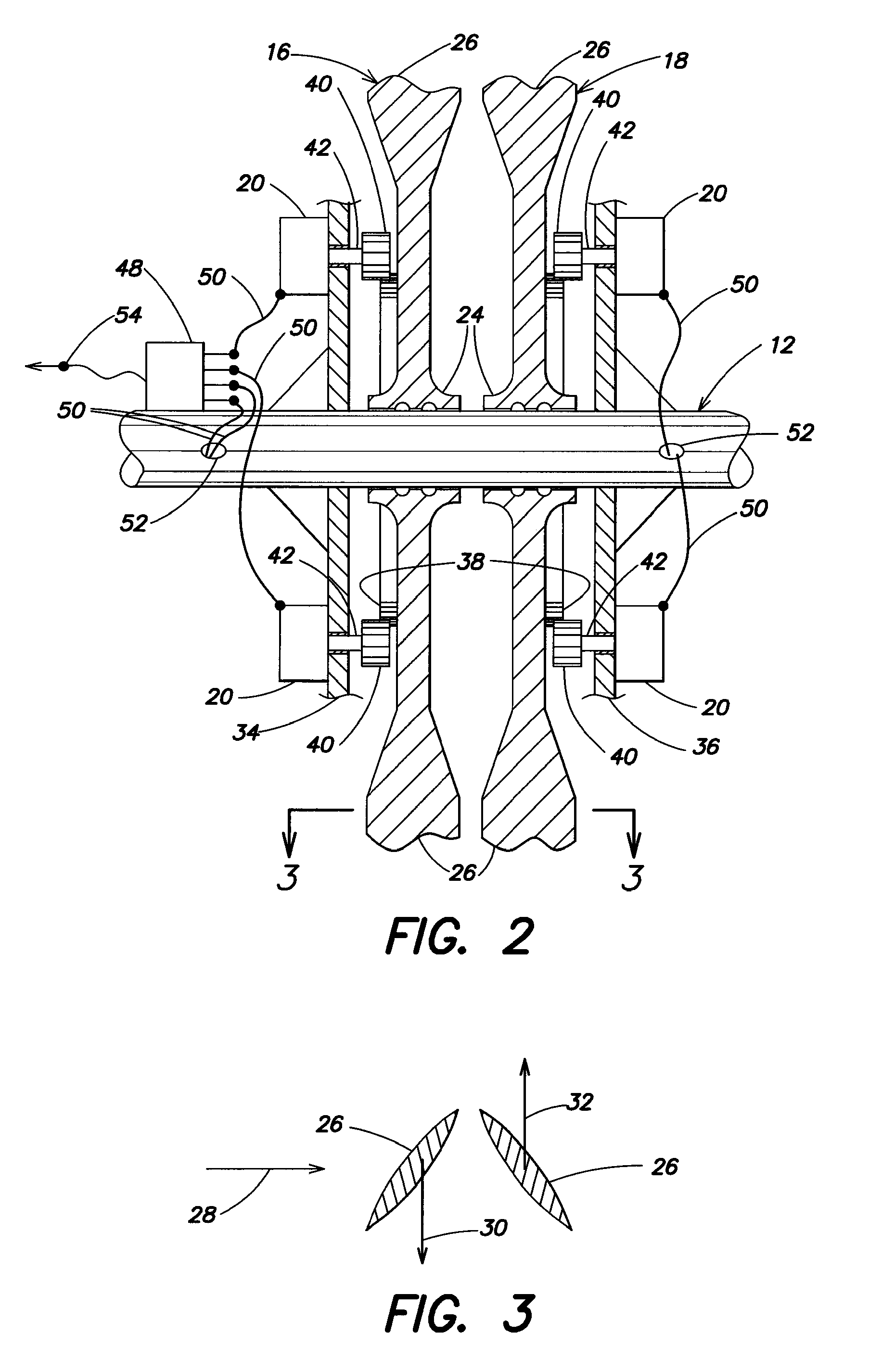Airborne wind turbine electricity generating system
- Summary
- Abstract
- Description
- Claims
- Application Information
AI Technical Summary
Benefits of technology
Problems solved by technology
Method used
Image
Examples
Embodiment Construction
[0028]Referring to the accompanying drawings wherein the same reference numerals refer to the same or similar elements, an airborne wind turbine system in accordance with a first embodiment of the invention is designated generally as 10 and comprises a central shaft 12, a turbine section 14 including a front wind turbine 16 and a rear wind turbine 18 rotatably mounted to the shaft 12, generators 20 which convert rotation of the turbines 16, 18 into electricity, and a lifting structure 22 coupled to the turbine section 14 for generating a lifting force to enable the turbine section 14 to rise into the atmosphere. Although shaft 12 is referred to as a central shaft because it is preferably situated in the axial center of the system 12, it is conceivable that the shaft 12 may be positioned off-center, and thus the centrality of the shaft 12 should not be considered a limiting feature, but rather only a preferred feature.
[0029]Each of the front and rear turbines 16, 18 includes a respec...
PUM
 Login to View More
Login to View More Abstract
Description
Claims
Application Information
 Login to View More
Login to View More - R&D
- Intellectual Property
- Life Sciences
- Materials
- Tech Scout
- Unparalleled Data Quality
- Higher Quality Content
- 60% Fewer Hallucinations
Browse by: Latest US Patents, China's latest patents, Technical Efficacy Thesaurus, Application Domain, Technology Topic, Popular Technical Reports.
© 2025 PatSnap. All rights reserved.Legal|Privacy policy|Modern Slavery Act Transparency Statement|Sitemap|About US| Contact US: help@patsnap.com



